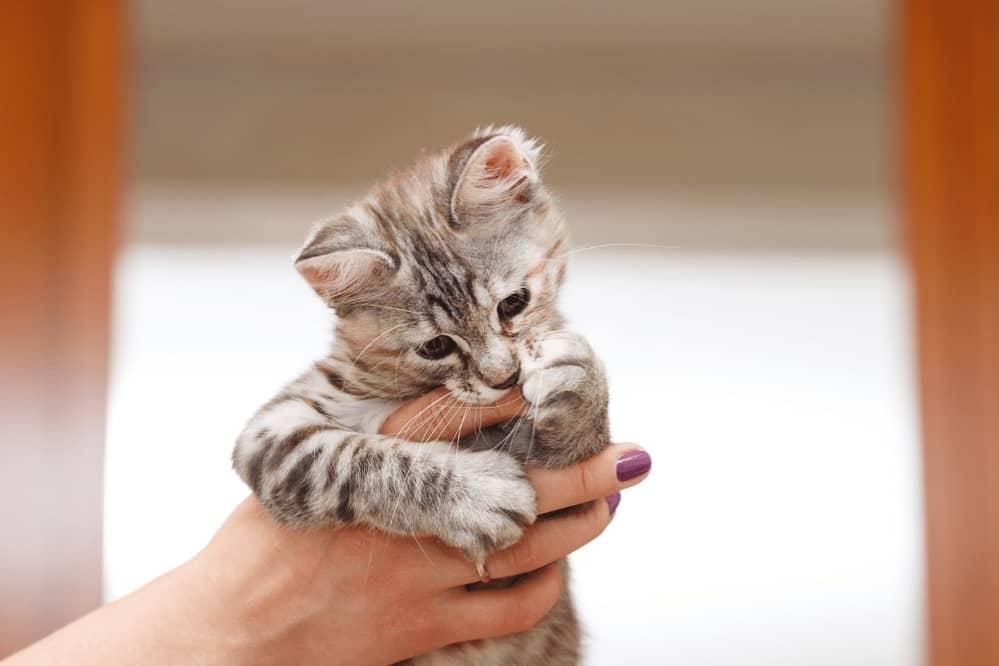As much as cats have generally been domesticated and are found in a lot of homes, these feline creatures still maintain a bit of their aggressive nature which they exhibit now and then, especially if they have not been properly cautioned or trained.
These aggressive behavioral patterns include biting and scratching. In this article, ways of training a kitten not to bite are highlighted. Before we share details on how to train your kitten not to bite, we will throw some light on why kittens bite.
Why kittens bite?
Cats are creatures that love to explore their environments. They do so a lot of the time with their mouths and very sharp teeth. Apart from the natural tendency to explore their environments, kittens also bite when they feel threatened or are in pain. For example, if a kitten is offered a meal in a way which seems threatening, they will bite the threat while eating the meal. Kittens are also quite shy and bite when they sense that a situation is overwhelming. Kittens also bite as a part of play. At about 3 weeks to 5 months, kittens can be particularly interested in play which includes biting, and if no other kitten is in sight, the nearest human will have to endure several bite sessions.
Kittens have very sharp teeth, and their bites can be very painful. It is thus important to adopt the following techniques to stop a kitten from biting.
Interrupt the biting sessions swiftly
Kittens are especially smart and yield to interruption of their negative behavior. It is important for the interruption to be done immediately as they start play biting so that they get the message. A pronounced hiss like a mother cat will discourage negative behaviors . A stern voice will also work as an interruption measure. Screaming works effectively for very young kittens that are below 5 months old. If this does not bring change in behavior, you can use spray bottle method to stop kitten from biting as they do not like getting sprayed in the face.
Offer an alternative
A kitten will not completely stop biting. It will only stop biting you. It is thus important that in discouraging a kitten from biting you, an alternative bite object should be provided to your kitten. Bite objects are readily available and should be introduced to the kitten whenever they seem like they are about to bite. Rewards for choosing to bite the bite object should be initiated. A special treat could be introduced for every time the kitten willfully goes for the bite object. Be sure to introduce the object a couple of times until they stop biting.
Introduce consequences
When consequences are introduced for bad behaviors such as biting, a kitten will get the message that their behavior is not welcomed. Bites usually start from some other positive interaction. A kitten may just be playing on your lap before it switches to play biting. Whenever the kitten begins to bite, be sure to stop every positive attention you were giving it while letting it know that biting is a bad behavior by hissing or with a stern voice.
Finally, it is important to add that it may take some time for a kitten to stop biting you.
Remember to be patient while implementing measures to stop a kitten from biting.

